In September 2016, Chinese Sinopec – a shareholder of SIBUR and its strategic investor – announced its candidate to the Management Board. The position went to Wenzhi Zou, previously in charge of foreign petrochemical and processing projects as a division head at Sinopec. In the article, the new member of the Management Board compares SIBUR and Sinopec, confesses his love for Sholokhov and Ostrovsky, shares some martial arts wisdom, gives tea recommendations for weathering the summer heat and the winter frost, explains China’s obsession with work and provides management advice.
On career choice
My parents used to work at First China Petrochemical Company, so the petrochemical industry has been a part of my life ever since the early childhood. They enrolled me into a school that specialised in petrochemistry, and in the course of our studies we often went to a Soviet-built petrochemical plant in Lanzhou. As far back as I can remember into my school years, I was always knee-deep in the industry. My career was a foregone conclusion.
I was able to get into a highly prestigious Tianjin University to study chemical technologies and graduated with a degree in chemical engineering.
In Russia and China, we both say “to take something in with the mother's milk”. For me, that “something” was my love for petrochemistry. The expression we use in China literally translates into “taking over the parents’ business, following into their footsteps”.
First China Petrochemical Company is the predecessor of today’s Sinopec. Having existed up until 1983, it was transformed into the state-owned China Petrochemical Corporation. In July 1998, the corporation was restructured as China Petrochemical Corporation (Sinopec Group).
On childhood dreams
Despite my love for petrochemistry, I was still able to partake in the traditional joys of childhood. We too used to play around as policemen, fire-fighters and astronauts, dreaming someday we could live these fantasies. This was at the time of close cooperation between China and the USSR, and Chinese people were very enthusiastic about the Soviet space exploration breakthroughs.
However, I was growing up during the Cultural Revolution, which was no time for childhood fancies: I had to choose a profession that would set me up for a good life and help better the country.
On wooden toys
My childhood coincided with a hard period for China. Put plainly, the country was quite poor. The most popular toys were slingshots or rifles and guns that we carved fr om sticks and tree branches. You could think I was a bit of a troublemaker, and you would be right: I did get into some mischief, breaking windows and all.
However, I was never a spoiled kid, and when parents would give me real, store-bought toys, it was a cause for celebration. It is somewhat ironic that I ended up working at some of the largest petrochemical companies, since we produce around 90% of feedstock for the world’s toys.
On industrialisation
In the 1950s, China’s first five-year plan saw the construction of over 160 industrial production sites, with Soviet experts helping build most of them. Before that, China had not been industrialised in the slightest – we used to be a fully agricultural economy.
My parents’ generation studied Russian in schools, as it was part of the state curriculum. We did not really speak it at our house, but I too learned the basics of the language.
Funnily enough, now that I have moved to Russia and look out the window, I recognise the same architecture as back home in China. These are all buildings that date back to the 1950s and 1960s. In a way, the familiar architecture is helping me settle in faster.
On Soviet ballet and literature
It was in school that I first dipped my toes into the USSR’s endlessly rich cultural heritage. I still have vivid memories of the school books on the Soviet literature, theatre, museums and painters. Especially popular were Maxim Gorky’s The Lower Depths and Isaac Levitan's paintings, which we studied extensively.
In China, I was lucky enough to catch a Russian ballet performance. It is a well-known fact that the Soviet and Russian ballet is a byword for excellence, so it was a beautiful, powerful and evocative performance.
The first time I visited a Russian theatre was in 2014, when I went to see Turandot in Yevgeny Vakhtangov's theatre in the Arbat. Needless to say, I was completely fascinated.
How the steel was tempered
In 1982, I read Nikolai Ostrovsky’s How the Steel Was Tempered, which, as you know, follows the events of the Civil War and the early years of the nationalised economy and socialist construction. The ideas, images and heroics portrayed by the book very much resonated with the Chinese people and their mission at the time. In fact, you could say that they are just as relevant in the modern China.
Leo Tolstoy’s Anna Karenina made a lifelong impression on me, as well as And Quiet Flows the Don by Mikhail Sholokhov. Pushkin’s poems are also a favourite.
On work ethic
China is notoriously populated by confirmed workaholics, which helped it to achieve its economic miracle. I visited 30 countries and can attest to us indeed being one of the most hard-working nations. However, there is a reason for that: China has a huge population and scarce resources, so people need to constantly work and improve themselves to remain competitive and earn a decent living.
On vacations
Another reason why Chinese people work so much is the fact that our labour laws do not really provide for vacations. For example, I have been in the workforce for over 20 years, and I get 15 days off a year. However, I do not take them, which in turn means that neither do my subordinates. This is the way things are at all Chinese companies. For that reason, the legislators have recently been talking about making vacations more available. It is more of a recommendation for executives than a requirement: take a vacation so that your subordinates can have one as well.
Now that I live in Russia, I do not intend to go against the labour code, so I am planning to go on a vacation. By the way, I quite like your country's employment terms, with paid business trips that happen to fall on a weekend and all.
On living standards
The income level in China, just like in any other country, depends on the region. The biggest cities like Beijing, Shanghai and Guangzhou enjoy the highest living standards, but the prices there are just as high as the salaries.
The Chinese authorities have recently published the country’s minimum wage, which amounts to CNY 1,400, or some RUB 12,000.
On censorship
China is rightfully considered a pretty isolated country. We do have censorship, but only when it comes to saying and writing anything bad or offensive that undermines the authority of the government and its top officials. People are free to openly talk about any other topics.
Social networks and the internet are open and available for everyone, but they are regulated: the content is monitored to comply with the above-mentioned restrictions.
On sports and martial arts
Martial arts do play a part in Chinese people’s lives. A very widespread one is Wushu, which is much more of a philosophy rather than a fighting style. People practice it fr om the early childhood. Especially popular is one of its offshoots – taijiquan, which literally translates into “Fist of the Supreme Ultimate”, and training with nunchuks is also widespread. I do not consider myself much of a martial arts expert, but I am not a total stranger either.
As for sports on the whole, I quite enjoyed football as a child, but later in life I became too busy for that. Nowadays, I like swimming in the pool and taking walks in the fresh air with my family.
I know that SIBUR employees play a lot of basketball and hockey, and that goes for the Management Board members as well. I have not yet had a chance to play with any of them, but if I do get the offer, I will need to brush up on my skills to put up a decent fight.
On living in two countries
I came to Russia in 2016 with my wife Yang Hui and my son Hanchun. In February or March 2018, both of them will return back to China: Hanchun will be starting school, and my wife will continue her work at the Beijing University of Civil Engineering and Architecture, wh ere she teaches courses on Air Conditioning Engineering and Architecture. Right now, she is on a one-year academic leave.
They love it here in Russia. When Hanchun was at the Beijing international kindergarten, he called himself Alan, and while in Moscow, he asked to be addressed as Alexander.
It is hard to get by in Moscow without knowing Russian, so when we go shopping my wife and son do the talking – they have a much firmer grasp on the language than I do.
On layers of meaning
Most of Chinese names are made up of two (in rare cases – one) syllables, each with its own meaning. For example, my name contains the words wén and zhì, which stand for “culture” and “wisdom”. Huī – my wife’s name – means “brightness”. I would give it a more creative translation, such as “the shining of the rising sun”. The name of my son has the words hàn and chún in it, which mean “pure" and "honest".
Tastes differ
The local cuisine was the hardest thing to get used to when I came here. Compared to China, there are not that many fresh vegetables and other greens to choose from. That is why my wife cooks me food to take to work. At weekends, we go to restaurants and cafés, wh ere we discover new dishes and appreciate the local culinary traditions.
I did enjoy some things in the Russian cuisine, namely – the herring. It both tastes great and comes in a convenient package – scaled and ready to eat.
What surprised me the most was the ubiquity of dill – Russians add it to each dish, raw. The Chinese eat dill too, but we cook it first, like in the popular dumplings with dill.
On tea and literature
Two of my biggest passions are tea and books. Tea ceremonies help me to unwind and clear my head. In summer, I recommend drinking the Longjing and Biluochun tea. They have a soothing effect along with a delicate and tender flavour. In winter, go for Oolong and Tieguanyin, which will warm your body and make you feel better.
Books for me are a source of new knowledge and ideas. Right now, I am in the middle of Will Durant's The Story of Philosophy: my move to Russia sparked an interest in the differences between the world’s cultures and mentalities.
On work experience
To be the best executive you can, you need to spend some time in the shoes of your subordinates. In our case, any top manager should have hands-on production experience. I joined the shop floor at the age of 22. Under a job placement programme, I was given a position at a design institute of a plant in Jinxi (Liaoning province in the northeast of China). A bunch of fresh-faced graduates, we spent a lot of time with workers, designers and researchers, always testing something and learning new things. It was an interesting and novel experience that gave us invaluable skills.
I spent the rest of my career in the office working in my field, but the knowledge I gained on the shop floor has always been an asset.
On work goals
SIBUR is a world-class company that is rapidly developing and boasts efficient corporate governance, but that was not the only reason that prompted Sinopec to become a shareholder. We were also interested in future joint projects and cooperation. My goal is to make these plans a reality.
We are currently expanding interaction between Sinopec and SIBUR in R&D, technical capacity, procurement, production, market activities and other spheres. I hope that this relationship will allow both companies to strengthen their ties and derive mutual benefit.
On the importance of partnership
Sinopec is a bit “older” than SIBUR. Our business is larger in scale, we have more employees and a greater product range. However, we never look down on our partners or make deals from a position of strength. Business relationships should be based on equality and mutual respect, as only then we can achieve successful cooperation.
We have been watching SIBUR for a long time, and I am glad to report that the company has a world-class corporate governance framework. SIBUR is a rapidly changing company that is open to cooperation and has a defined development strategy. These three things are at the core of what makes SIBUR great, and they are something that Sinopec, as successful as it is, can definitely learn from.
On constantly moving forward
Just like SIBUR, Sinopec is always working towards new achievements, adopting the best practices and boosting our growth. Constant improvement is part of our corporate philosophy (speaking both for SIBUR and Sinopec here).
When I was familiarising myself with SIBUR's Small Steps Improvement programme, I found a lot of similarities to what we do at Sinopec. Our company employs over one million people, which is why the improvement system is being implemented at the level of individual plants, with the best practices subsequently rolled out to the entire company.
On ZapSibNeftekhim
I will not reiterate how essential ZapSibNeftekhim is for both SIBUR and the global petrochemical industry – everyone knows that. I will rather share my experience of visiting the project’s construction site. Ever since I was at school, I have been up to my neck in the petrochemical business, so I have a good understanding of the size and specifics of the facilities, and it is pretty difficult to impress me with anything of the kind. Yet ZapSibNeftekhim proved to be a surprise. The project will definitely bring SIBUR to another level.
The construction pace is also encouraging, with a great progress made between my first site visit in August 2013 and the second one in December 2016. I remember the stunning winter view of the site, with 20 degrees below zero outdoors (uncommon for my country) and the works underway as usual, like frost was not a problem for either people or equipment.
On the governance model
The governance models at SIBUR and Sinopec differ greatly primarily due to cultural specifics and the companies' business structures. Reporting might be a good example to see the difference in cultures and their effect on operations. At SIBUR, information is often presented in graphical and tabular formats in a more visual way, while Sinopec tends to do the reporting primarily in writing, as is common for the Chinese culture.
As a state-owned enterprise, Sinopec also has to deal with more multitasking, with decision-making often based on a wider range of factors, rather than purely economic benefits.
On people management
Being an effective manager means setting clear and concise goals. It is vital to align employees' personal targets with the company’s goals. Psychology is also quite handy as it helps to leverage personality types, strengths and weaknesses. I try to keep things open and avoid any hidden issues, so I am always there to discuss, explain or help those who need it. Time helps you better know your team and realise not only their abilities and limits but also the pressure you can put on them.
On valuable qualities
I believe there are two criteria for assessing the value of an employee. The first one is attitude to work, motivation. The second one is proactiveness, commitment and aspiration for personal and company's growth. In China, we have a proverb, which says, “A man’s attitude paves the way to his future.”
On future plans
We live in a rapidly changing world, which makes it very hard to guess the future. We can merely be not good at guessing. For instance, a year ago I could not even imagine me leaving China for Russia to work here. What I am certain about is that in twenty years, when I retire, I will spend more time with my family.
On major life accomplishment
I think I have quite succeeded in life and I am very proud of it. My family and my career are the major pillars for me. However, it is not yet the time to rest easy – every morning I wake up wishing to do something new, to improve something that already exists. I am very enthusiastic about meeting new people, learning from their experience and developing further.
My work and the experience it gives me are my key accomplishments. At Sinopec, I was in charge of M&As and investments, and I greatly appreciate being part of its global world-scale projects.
Download PDF

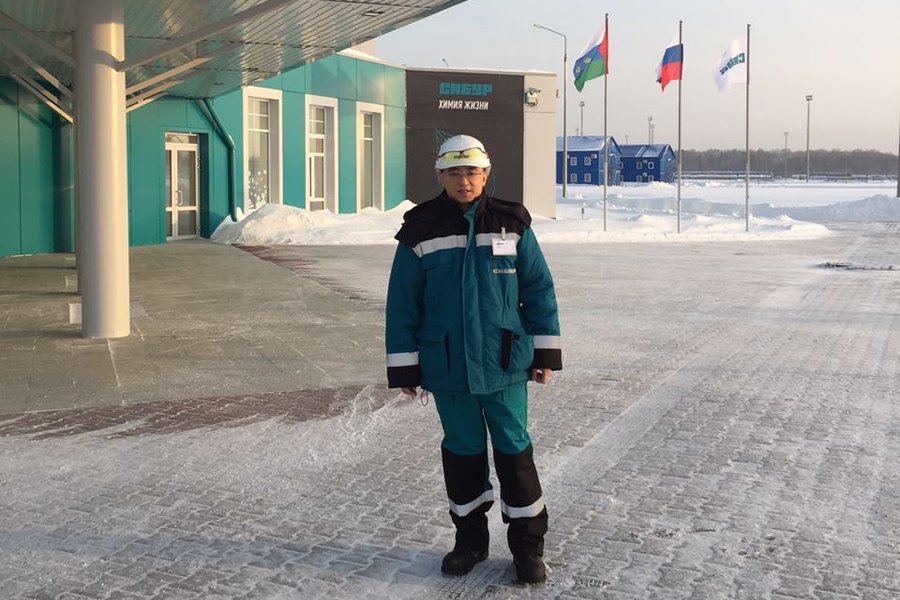
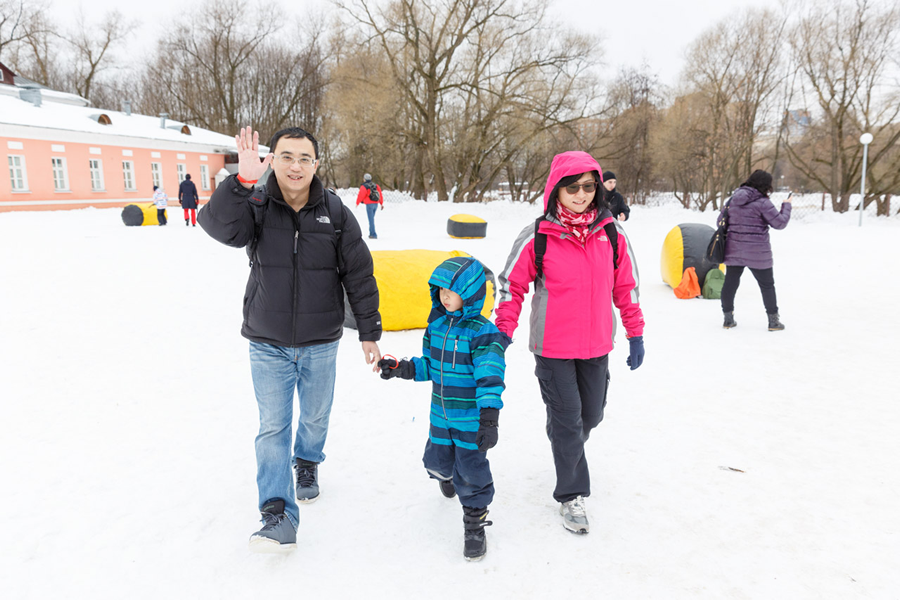

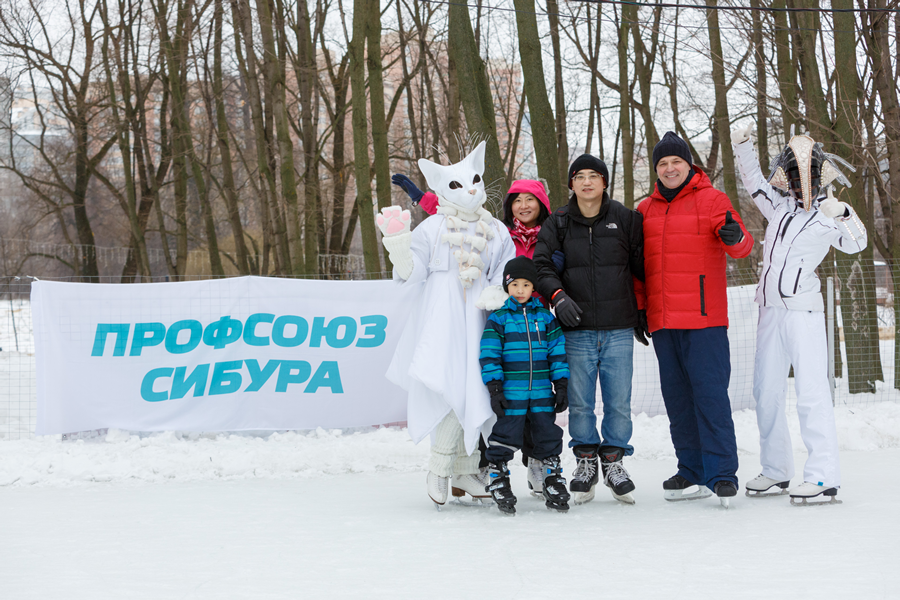


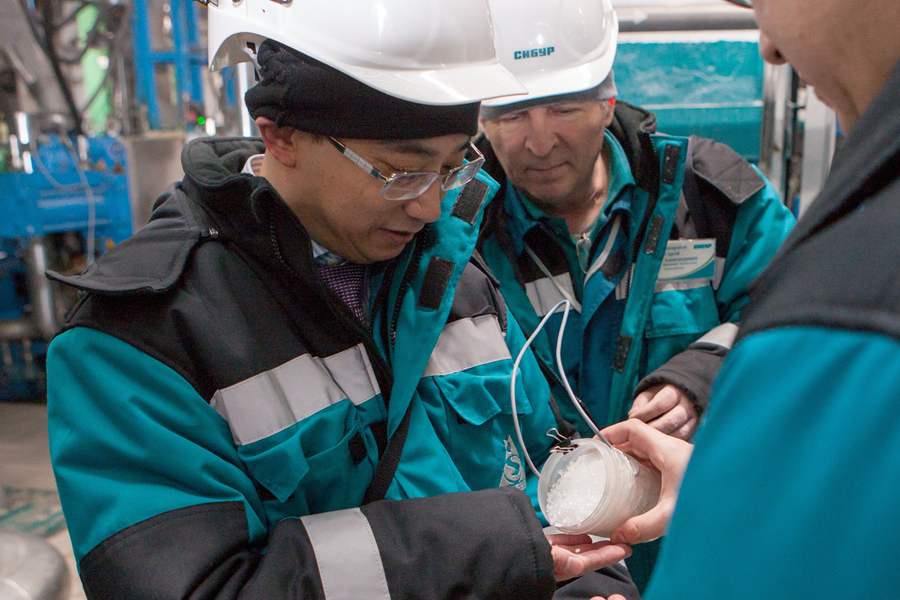
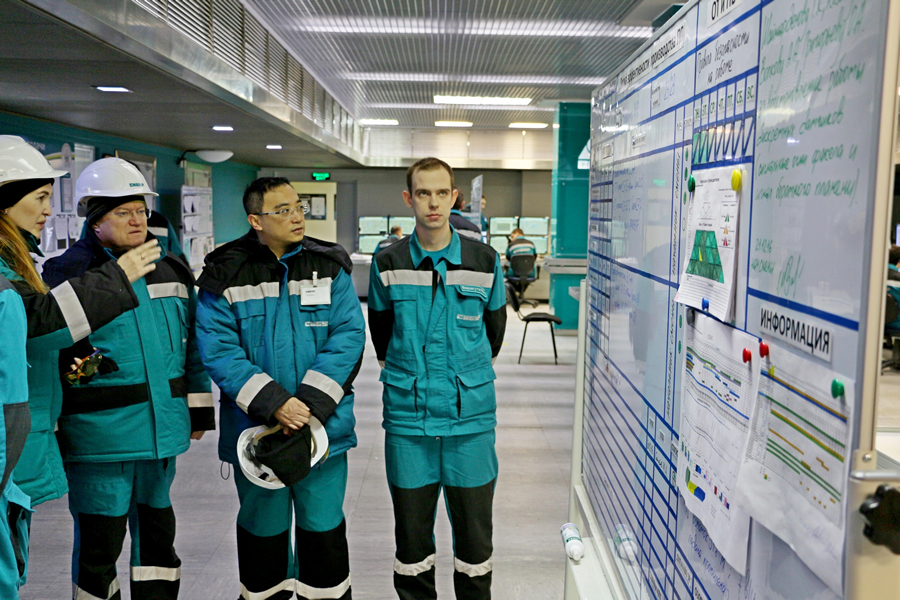


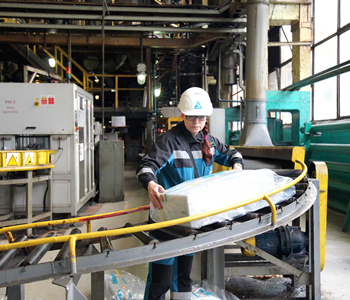


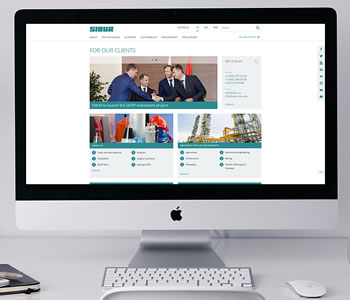
Dossier
Full name: Wenzhi Zou
Date of birth: 9 November 1970
Foreign languages: English
Hobbies: tea, reading
Family status: married, has a son
Recipe for successful management: efficient goal setting is paramount